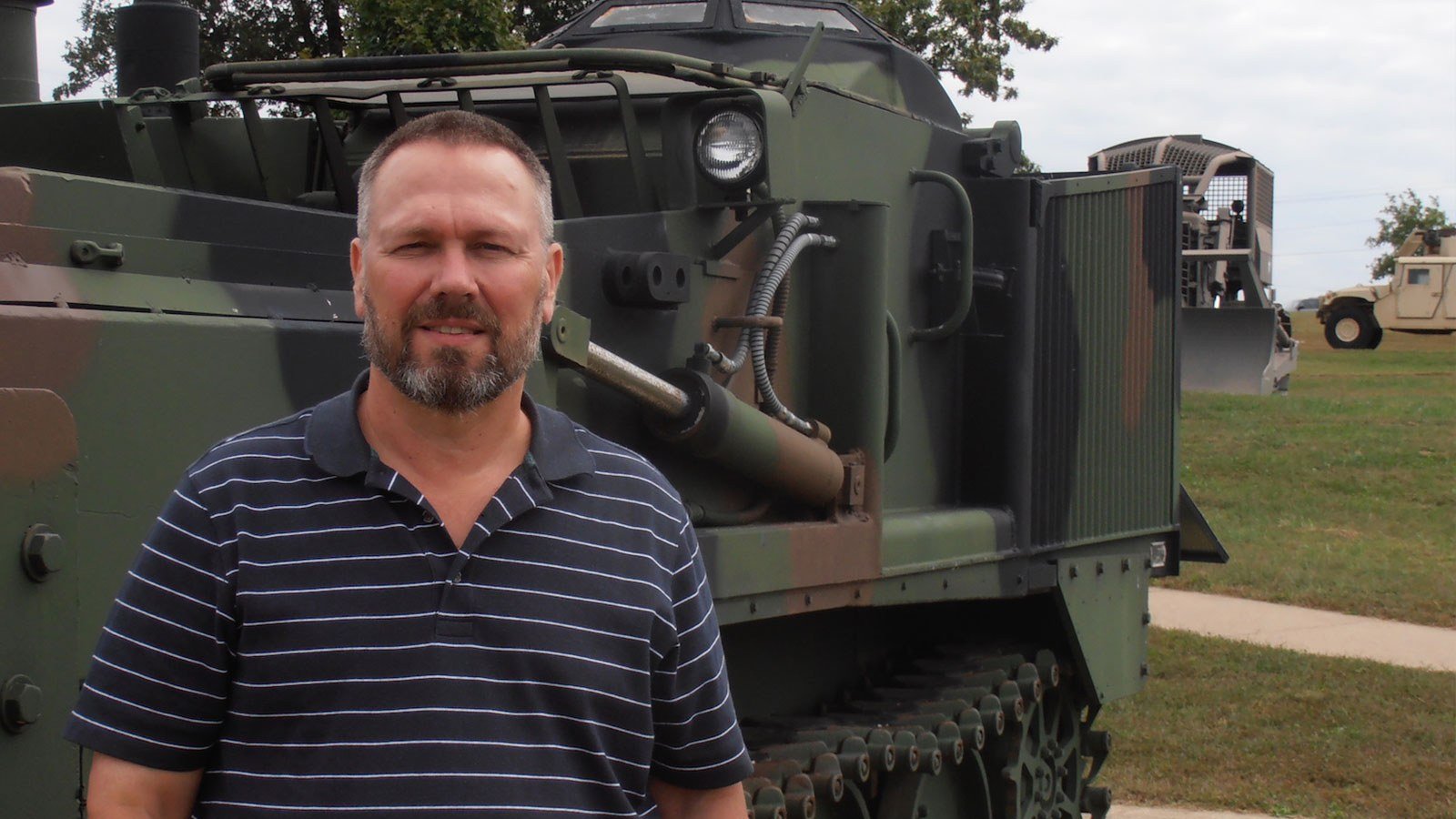Full Sail Stories
Published Oct 13, 2016
Chuck McGinnis: Big Data in the Military
Business Intelligence grad works as Operations Research Analyst for the US Army.

Data analytics play a huge role in the successful operation of organizations of all sizes, from small independent businesses to large conglomerates. The United States’ military system is obviously bigger than any of the aforementioned entities – but it’s an operation that relies on expert analysis of vast amounts of information all the same. And as an Operations Research Analyst for the Department of Defense, Full Sail University Business Intelligence Master’s graduate Chuck McGinnis plays a crucial role in that machine.
With 22 years of military service under his belt prior to working in operations research, Chuck is certainly no stranger to the inner workings of the U.S. Army. His past experience and familiarity with that organization provide him with additional insight in his job’s responsibilities, which typically find him studying existing challenges and providing feedback as to how things can be improved. Providing solutions to these problems can come in the form of a new system or product, or it can be a change in the way that an organization’s members are trained.
“As you progress in your military career, you’re often involved in training development or what we call capability development. These are stages where we look at certain requirements in the operational environment, and address how we can meet them as well as seeing if there are any gaps that may exist in our workflow,” says Chuck, who is currently focused on studying police intelligence operations. “If they do exist, we then have to decide what additional capabilities we need in order to complete the mission. Where are we having problems? Is there a new piece of equipment or a new vehicle that could help us as threats evolve and come up with other ways to counter what our military is already doing?”
In the last three years, Chuck was focused on cost-benefit analysis. Teamed with a capability developer, his task entailed applying a study process to a capability and then determining what courses of action could be made to fully address the issue. In preparing documents that will essentially inform decision-makers in green-lighting a new solution, plenty of research takes place.
“It could be anything from a literature review to spending time looking at documents and understanding the problem as we try to identify exactly what we’re trying to solve. Figuring out where risks might be present, and then determining how we can mitigate those risks,” Chuck says. “I work with subject matter experts and rely on their knowledge. It’s a collaboration with a lot of different people, with many meetings, brainstorming sessions, and tons of writing along the way.”
Data analytics was a career path that gradually made more and more sense for Chuck as his military career expanded. In 2014, as he was seeking to further his education on the subject, he discovered Full Sail University’s Business Intelligence Master’s Degree program and was intrigued by what he saw.
“I was looking for something that I could do online and potentially complete within a year’s time, and I also wanted something that I could apply my military G.I. Bill towards. Full Sail’s program met a lot of the criteria,” he says. “I saw that I could apply a lot of the business world skill sets that the Business Intelligence program covered to the military.”
The program’s data analytics, statistics and data mining, and literature review components all rank as influential parts of his studies that have helped him in his current career, but it’s the Capstone project – which requires students to present a final thesis document encompassing their data warehouse and present key findings – that truly stands out today.
“The whole Capstone process is really what I do as a professional analyst. It’s almost the same exact thing,” says Chuck. “I just recently had a chance to do an intense military analysis course in Virginia and it was very similar to what I experienced at Full Sail.”
Though any job that entails thorough data analysis can be taxing in some regard, Chuck is ultimately driven not just by his constant curiosity to find new ways to solve challenges – but the fact that his efforts help fuel a greater good for the United States of America.
“I’ve always had a strong desire to learn and grow. I love exploring new things. One of the interesting things about this job is that you’re always doing something new, or addressing a new problem,” says Chuck. “The people who benefit from all of this work are the service men and women who are at the forefront of serving and protecting our country. It’s satisfying to know that what we do is going to make their jobs safer and more effective – that’s who we do the work for.”



